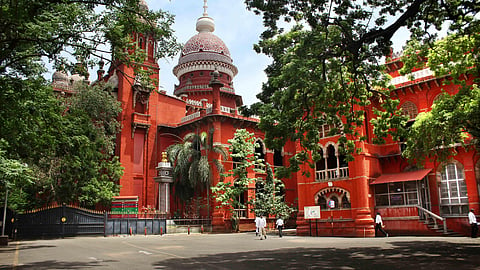

CHENNAI: In a significant judgment that may have implications for a slew of money-laundering cases, the Madras High Court has ruled that mere quashing of the predicate offence FIR on technical or procedural grounds cannot make the money-laundering case, Enforcement Case Information Report (ECIR), liable to be quashed.
The judgment was delivered recently by a division bench of justices SM Subramaniam and V Sivagnanam while dismissing the petitions filed by Vijayraj Surana and others of the Surana Group of Companies. The petitioners had prayed for the quashing of the ECIR registered under the Prevention of Money Laundering Act (PMLA) citing the quashing of the predicate offence FIR registered by the CBI by the Karnataka High Court.
The CBI and the Serious Frauds Investigation Office (SFIO) registered separate cases against the Surana Group of Companies on the charge of siphoning of Rs 3,986 crore of loans availed from PSU banks.
The Madras HC bench, while dismissing the petitions, noted that the predicate offence FIR was quashed on the “technical / procedural ground” that a similar FIR was already registered by the SFIO and not on substantive grounds of merits of the case. It noted that the offence under Section 447 of the Companies Act, 2013, a scheduled offence, is still pending and not quashed.
The bench said ECIR is born from FIR, but once the ECIR is born, the umbilical cord that connects the ECIR with FIR loses its relevance and the ECIR becomes an independent document in itself.
Pointing out that PMLA is sui generis legislation enacted with a specific purpose and objective to “track and investigate” the case of money laundering, the bench said the Act is a complete code and is with primary focus on proceeds of crime with respect to scheduled offences mentioned in the Act.
Madanlal case judgment
The bench said the wordings in the Vijay Madanlal Choudhary case order cannot be accorded a “narrow meaning” by relying only on the summarisation towards the end of the judgment.
Making it clear that the bench does not attempt or intend to rewrite the Vijay Madanlal Choudhary judgment, the judges said they are merely restraining from a “pick and choose application” of the principle established in the judgment and rather go for a “complete harmonious application” of the judgment in letter and spirit.
“If the principle of automatic quashment of ECIR is adopted arithmetically, the very purpose and objective of PMLA is defeated,” the bench said.
It said a blanket application of the observations made in the judgment will not advance the objective of the PMLA, but, in turn, will defeat its primary objective.
“The Vijay Madanlal case is a binding precedent for all courts below. And on careful application of the judgment, analysing on a case to case basis, the output shall defer for each case and not render the same result,” the bench held. The bench reiterated that an ECIR loses its significance and is liable to be quashed only if the predicate offence FIR is quashed on substantive grounds of absence of prima facie offence and not on mere procedural irregularities.
It commented that quashing of predicate offence FIR cannot be a viable ground for quashing ECIR if the PMLA proceedings are set in motion and prima facie findings are already made, including the filing of chargesheet.
The bench said each case must be tested on its own, in consonance with the Vijay Madanlal judgment, and a blanket application of the principle without due regard to the facts of each case shall render both the judgment and the objective of PMLA ineffective.
Senior counsel TR Ragavacharyulu and MR Venkatesh appeared for the petitioners while Additional Solicitor General (ASG) AR L Sundaresan, assisted by N Ramesh, represented ED in the case.
‘Not attempting to rewrite SC judgment’
Making it clear that the bench does not attempt or intend to rewrite the Vijay Madanlal Choudhary judgment, the judges said they are merely restraining from a “pick and choose application” of the principle established in the judgment.